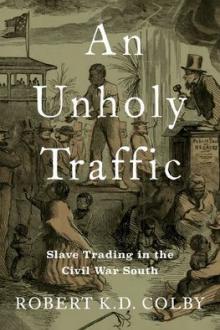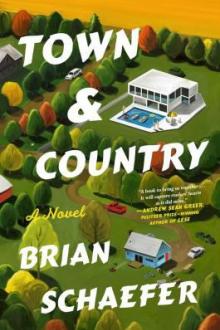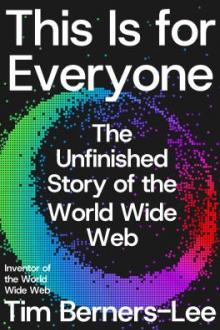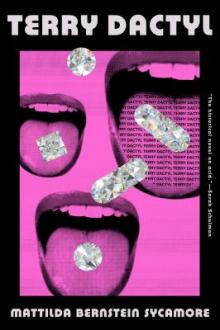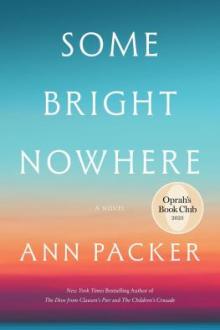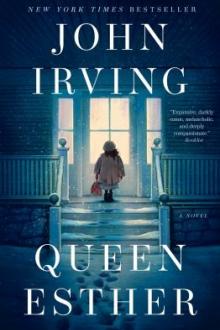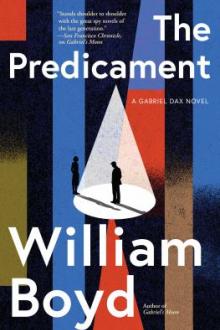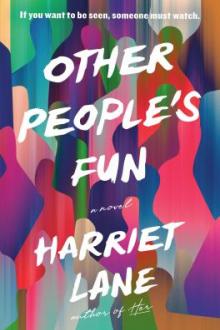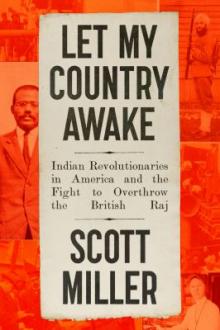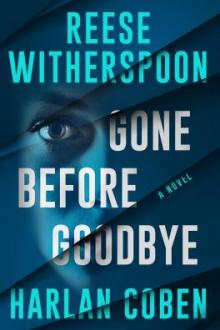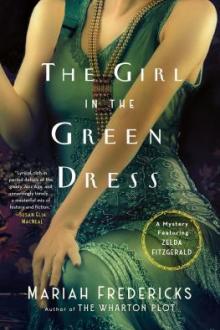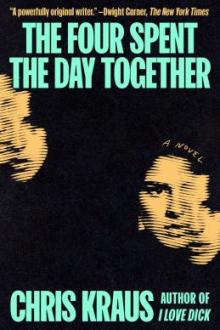ODY New Books Collection
New Books
An Unholy Traffic
Slave Trading in the Civil War South
Authored by: Robert K.D. Colby
"During the American Civil War, Confederates bought and sold thousands of men, women, and children. A robust and surviving slave trade, the extension of a traffic that had emerged to support the rise of the Cotton Kingdom, enabled them to do so. Even though the war destroyed the economy that had long underpinned American slavery, Confederates nevertheless traded people from Fort Sumter to Appomattox. Some took advantage of the enduring slave trade to shape their experiences of the war, using their ability to force people into motion to mobilize for the conflict or to weather the numerous crises it created on the homefront. Others speculated wildly, investing in the enslaved during the war to ward off inflation and to buy shares in the slaveholding future for which they fought. Still others traded people to ward off the progress of emancipation. For those held in slavery, meanwhile, the surviving slave trade dramatically shaped the ways in which they encountered freedom, preventing many from achieving it by yanking them back into bondage even as it inspired others to take the risk of escaping. The Civil War slave trade thus profoundly shaped the experience of the conflict for all residents of the American South. Regardless of the choices they made--to buy or to sell people, to risk sale or to flee from it--the effects of the slave trade reverberated throughout the conflict and produced legacies that endured long after the guns fell silent."-- Provided by publisher
Unabridged
The Thrill of (and Threat to) the Modern Dictionary
Authored by: Stefan Fatsis
"Words are the currency of culture - and never more than today. From selfie to doomscrolling to rizz, our hyper-connected digital world coins and spreads new words with lightning speed and locks them into mainstream consciousness with unprecedented influence. Journalist and bestselling author Stefan Fatsis embedded as a lexicographer-in-training at America's most famous dictionary publisher, Merriam-Webster, to learn how words get into the dictionary, where they come from, who decides what they mean, and how we write and think about them. In so doing, as he recounts in Unabridged, he discovered the history and fascinating subculture of the dictionary and of those who curate and revere "one of the most basic features of our collective humanity." Fatsis reveals the little-known story of how the brothers George and Charles Merriam acquired Noah Webster's original American dictionary and reshaped the business of language forever. Merriam-Webster became America's most successful and enduring compendium of words, withstanding intense competition and cultural controversies - only to be threatened by the power of Google and artificial intelligence today. Delving into Merriam's legendary archives and parsing its arcane rules, Fatsis learns the painstaking precision required for writing good definitions. He examines how the dictionary has handled the most explosive slurs and the revolutionary change in pronouns. He votes on the annual Word of the Year, travels to the legendary Oxford English Dictionary, and visits the world's greatest private dictionary collection in a Greenwich Village apartment stuffed with more than 20,000 books. Fatsis demonstrates how words are weaponized in our polarized political culture-from liberal to woke to DEI-and, in a time of insurrections and pandemics, how they can be a literal matter of life and death. Along the way, he manages to write a few definitions that crack the code and are enshrined in the pixelated dictionary." -- Provided by publisher
Town & Country
A Novel
Authored by: Brian Schaefer
"The trendy rural town of Griffin has become a popular destination for weekenders and the city's second homeowners, but now a congressional race in this swing district is highlighting tensions between life-long residents and new arrivals. The campaign pits local pub owner and town supervisor Chip Riley against the wealthy young carpetbagger Paul Banks, challenging the social and political loyalties of their families and friends with lasting repercussions. Diane Riley, Chip's wife, is a religiously devout real estate agent who feels conflicted about selling second homes--including to Paul and his much older husband, Stan. Their elder son, Joe, is grieving the recent overdose death of his best friend and spiraling into drugs himself, while their younger son, Will, is a newly out college student seduced by the decadent lifestyle of Paul's circle. Meanwhile, Stan Banks uses the race to give purpose to the pain of losing a loved one to AIDS, even as he begins to doubt Paul's readiness for office. And within their growing fraternity of city transplants, Eric Larimer finds unexpected connection with a local farmer that opens his eyes to the region's complexity as Leon Rogers, still reeling from a divorce, becomes increasingly desperate to infiltrate the Banks's exclusive crew"-- Provided by publisher
This Is for Everyone
The Unfinished Story of the World Wide Web
Authored by: Tim Berners-Lee, with Stephen Witt
In this memoir, Tim Berners-Lee, inventor of the World Wide Web, recounts the development and impact of his creation. The book explores the origins of the web, its transformative role in global communication and collaboration, and the challenges it now faces, including threats to privacy, truth, and public discourse. Combining personal narrative with reflections on technology and society, Berners-Lee offers insights into the future of digital life and advocates for a more ethical and inclusive web.
The Third Love
A Novel
Authored by: Hiromi Kawakami
Translated from the Japanese by Ted Goossen
"Having married her childhood sweetheart, Riko now finds herself trapped in a relationship soured by infidelity. One day, she runs into her old friend Mr. Takaoka, who offers friendship, love, and an unusual escape: he teaches her the trick of living inside her dreams. Now, each night, she sinks into another life: first as a high-ranking courtesan in the seventeenth century, and then as a serving lady to a princess in the late Middle Ages. As she experiences desire and heartbreak in the past, so Riko comes to reconsider her life as a twenty-first-century woman-as a wife, as a mother, and as a lover-and to ask herself whether, after loving her husband and loving Mr. Takaoka, she is ready for her third great love." -- Provided by publisher
Terry Dactyl
Authored by: Mattilda Bernstein Sycamore
"From iconic author and activist Mattilda Bernstein Sycamore comes a breathless search for intimacy and connection, from club culture to the art world, from the AIDS crisis to COVID-19. Terry Dactyl has lived many lives. Raised by boisterous lesbian mothers in Seattle, she comes of age as a trans girl in the 1980s in a world of dancing queens and late-night house parties just as the AIDS crisis ravages their world. After moving to New York City, Terry finds a new family among gender-bending club kids bonded by pageantry and drugs, fiercely loyal and unapologetic. She lands a job at a Soho gallery, where, after partying all night, she spends her days bringing club culture to the elite art world. Twenty years later, in a panic during the COVID-19 lockdown, Terry returns to a Seattle stifled by gentrification and pandemic isolation until resistance erupts following the murder of George Floyd, and her search for community ignites once again. In propulsive, intoxicating prose, Terry Dactyl traces an extraordinary journey from adolescence to adulthood, delivering a vital portrait of queer identity in all its peril and possibility."-- Provided by publisher
Some Bright Nowhere
A Novel
Authored by: Ann Packer
"Eliot and his wife Claire have been happily married for nearly four decades. They've raised two children in their sleepy Connecticut town and have weathered the inevitable ups and downs of a long life spent together. But eight years after Claire was diagnosed with cancer, the end is near, and it's time to gather loved ones and prepare for the inevitable. Over the years of Claire's illness, Eliot has willingly--lovingly--shifted into the role of caregiver, appreciating the intimacy and tenderness that comes with a role even more layered and complex than the one he performed as a devoted husband. But as he focuses on settling into what will be their last days and weeks together, Claire makes an unexpected request that leaves him reeling. In a moment, his carefully constructed world is shattered."-- Provided by publisher
Simply More
A Book for Anyone Who Has Been Told They're
Too Much
Too Much
Authored by: Cynthia Erivo
"Cynthia Erivo learned the music to Wicked a decade before she needed it, not knowing those same lyrics would change her life. Now she has performed those songs on the world stage, showing us there is always time to keep discovering ourselves - and to illustrate that it's often the parts of ourselves we are told to bury that make us shine. In a series of powerful, personal vignettes, Cynthia reflects on the ways she has grown as an actor and human and the practices she's learned over years of performing and reminds us all we are capable of so much more than we think." -- Provided by publisher
Queen Esther
A Novel
Authored by: John Irving
"Esther Nacht is born in Vienna in 1905. Her father dies on board the ship to Portland, Maine; her mother is murdered by anti-Semites in Portland. Dr. Larch knows it won't be easy to find a Jewish family to adopt Esther; in fact, he won't find any family who'll adopt her. When Esther is fourteen, soon to be a ward of the state, Dr. Larch meets the Winslows, a philanthropic New England family with a history of providing foster care for unadopted orphans. The Winslows aren't Jewish, but they despise anti-Semitism. Esther's gratitude for the Winslows is unending; even as she retraces her roots back to Vienna, she never stops loving and protecting the Winslows. In the final chapter, set in Jerusalem in 1981, Esther Nacht is seventy-six." -- Provided by publisher
The Predicament
A Novel
Authored by: William Boyd
"From the internationally bestselling author, a thrilling novel starring the travel writer turned reluctant spy Gabriel Dax, a masterful tale of loyalty, obsession, and spy craft. 1963, Guatemala. The country is in turmoil, and the CIA is not pleased that a charismatic, left-wing ex-priest and trade union leader is poised to win the upcoming presidential election. Amid this uncertainty, Gabriel Dax arrives on orders from his MI6 handler Faith Green, who has tasked him with assessing the situation undercover while posing as a reporter. Upon arrival, Gabriel grows increasingly suspicious that the genial local CIA agent, Frank Sartorius, is more untrustworthy than he appears. Soon, a political assassination with suspicions of Mafia involvement leads to riots, and Dax escapes back to Europe and his normal life. But when Green compels him to investigate shady characters in West Berlin ahead of the arrival of the magnetic young President Kennedy, it becomes clear that an even greater danger is afoot. A gripping novel of politics and spy craft with dramatic twists and turns, The Predicament shows Boyd to be one of our most masterful contemporary storytellers." -- Provided by publisher
Other People's
Fun
Authored by: Harriet Lane
"Ruth is alone, unnoticed, and at a loss: her marriage has ended, her daughter is leaving home, and her job is leading nowhere. But luckily Sookie is back in her life-vivid, self-assured Sookie, who never spared the time for Ruth when they were teenagers, but who now seems to want to be friends. But as Ruth is caught up in Sookie's life, she sees that everything is not as Instagrammable as Sookie would have you believe. As the truth about Sookie becomes clearer, so too does the choice Ruth will have to make."-- Provided by publisher
The Nine Lives of Christopher Columbus
Authored by: Matthew Restall
520 "Christopher Columbus was born Cristoforo Colombo, in the autumn of 1451 in the Mediterranean port city of Genoa, and he died in the Spanish city of Valladolid in May 1506, as don Cristóbal Colón. More than five centuries later, we are still arguing over his life and its significance. Millions if not billions of people have learned his name. Most have some sense of what he did, that it was momentous, a great achievement, an act of primacy. But was his achievement 'great' because he 'discovered America' and thus made possible the hemisphere's 'great' nations? Or was it an apocalyptic catastrophe for tens of millions of Indigenous and African peoples? In The Nine Lives of Christopher Columbus, acclaimed historian Matthew Restall, perhaps the leading scholar of the Spanish Empire, presents a new, authoritative biography of Columbus, while at the same time tracing his many afterlives down into our own time. He explores the mysteries, many of them manufactured, that color our understanding of Columbus even in the twenty-first century -- mysteries surrounding Columbus's name, nationality, place of birth, ancestry, education, religion, intellectual vision, moral fiber, sexual proclivities, and current resting place. He shows how Columbus became an iconic American hero in the nineteenth century, and how a parallel hero emerged in the form of the Italian American Columbus. Restall takes us beyond polemic, sifting through the evidence across nations, languages, and five centuries to explore the many questions that make up what he calls 'Columbiana.' He demonstrates that, far from a uniquely talented individual, Columbus was typical of the Iberian and northern Italian men of his day -- a merchant mariner who became an explorer, slave-trader, and conquistador-settler. And Restall challenges the notion, deeply held to this day, that Columbus can be credited or blamed for all that happened after 1492. Whatever one's views of Columbus, Restall's book is the necessary, definitive account. It dispels the myths and gives us Columbus as he was. It shows how he has been distorted in the centuries since his death -- and how we might come to understand him, and his legacies, anew." -- Provided by publisher.
Murder at the Christmas Emporium
A Novel
Authored by: Andreina Cordani
In this follow up to The Twelve Days of Murder, a group of Christmas shoppers discover the doors have been locked and that they've been trapped by someone who knows their darkest secrets. It's Christmas Eve at the Emporium, a bespoke gift shop hidden in the depths of London's winding streets, where a select few shoppers are browsing its handcrafted delights. But when they go to leave, they find the doors are locked and it isn't long before they realize this is no innocent mix-up. The shoppers have been trapped here by someone who knows their darkest secrets, someone will stop at nothing until they have all been unwrapped--and there is a gruesome gift waiting in Santa's grotto . . . For those that survive the night, it will be a Christmas to remember.
Metamorphosis
A Natural and Human History
Authored by: Oren Harman
""How many creatures walking on this earth / Have their first being in another form?" the Roman poet Ovid asked two thousand years ago. He could not have known the full extent of the truth: Today, biologists estimate a stunning three-quarters of all animal species on earth undergo some form of metamorphosis. But why do tadpoles transform into frogs, caterpillars into butterflies, elvers into eels, immortal jellyfish from sea sprigs to medusae and back again, growing younger and younger in frigid ocean depths? Why must creatures go through massive destruction and remodeling to become who they are? Tracing a path from Aristotle--who rejected the possibility of metamorphosis--to Darwin to today, historian of science Oren Harman explores that central mystery. Metamorphosis, however, isn't just a biological puzzle: It takes us to the very heart of questions of being and identity, whatever kind of change we may undergo. Metamorphosis is a new classic of natural history: a book that, by unveiling a mystery of nature, causes us to relearn ourselves." -- Provided by publisher
Let My Country Awake
Indian Revolutionaries in America and the Fight to Overthrow the British Raj
Authored by: Scott Miller
"A history of the Ghadar Party, an early-twentieth-century movement for Indian independence founded and based on the West Coast of the United States." -- Provided by publisher
The Heart-Shaped Tin
Love, Loss, and Kitchen Objects
Authored by: Bee Wilson
"One August day, months after the fallout of her marriage, a heart-shaped cake tin fell at Bee Wilson's feet. Not just any cake tin--the one she had used to bake her wedding cake twenty-three years ago. This sudden discovery strikes a wave of emotion that will steer her on a sprawling exploration of kitchen objects and our emotional responses to them. Wilson finds others who have also invested objects with strong meanings and emotions, discovering the ways in which kitchen utensils can become symbols of love and friendship, steadfast household companions, tools of whimsy and joy, and even emblems of political resistance. From a grandmother's prized china collection to a Ukrainian kitchen cabinet which withstood Russian bombing to Queen Elizabeth I's penchant for sieves, Wilson explores how we attach profound meanings to spoons and pots, whisks and washing-up bowls, and, ultimately, how they impact our memories and emotional well-being. The central heart-shaped tin, in the end, becomes a moving reminder of the power of new beginnings. Crossing continents, cultures, and time periods, Wilson weaves her own experiences into a wider narrative that reaches back to the earliest human civilizations. Thoughtful, sharp, and beautifully written, The Heart-Shaped Tin is a profoundly moving examination of our relationship to the physical world--and the people around us--in an increasingly rational and secular age." -- Provided by publisher
The Ha-Ha
A Novel
Authored by: Jennifer Dawson
"At a tea party at Oxford University in the 1950s, earnest undergraduates in floral dresses clink cups, discussing their studies, sports, and summer balls. But to one student, Josephine, they are grotesquely transformed: she is sitting among ominous armadillos. Then, the laughter comes. As she is engulfed in mirthless hysterics, her college has no choice but to send her away. Since her mother's death, Josephine's reality seems a badly painted canvas, viewed through the wrong end of a telescope. It is a relief to find a sense of belonging, for once, within the mental institution where she is confined. But, eventually, she must reintegrate with society. Through a transformative encounter with a fellow patient, a return to real life seems possible."-- Provided by publisher
Gone before Goodbye
Authored by: Reese Witherspoon, Harlan Coben
"Maggie McCabe is teetering on the brink. A highly skilled and renowned Army combat surgeon, she has always lived life at the edge, where she could make the most impact. And it was all going to plan... until it wasn't. Upside down after a devastating series of tragedies leads to her medical license being revoked, Maggie has lost her purpose, but not her nerve or her passion. At her lowest point, she is thrown a lifeline by a former colleague, an elite plastic surgeon whose anonymous clientele demand the best care money can buy, as well as absolute discretion. Halfway across the globe, sequestered in the lap of luxury and cutting-edge technology, one of the world's most mysterious men requires unconventional medical assistance. Desperate, and one of the few surgeons in the world skilled enough to take this job, Maggie enters his realm of unspeakable opulence and fulfills her end of the agreement. But when the patient suddenly disappears while still under her care, Maggie must become a fugitive herself--or she will be the next one who is..."-- Inside jacket flap
The Girl in the Green Dress
A Mystery Featuring Zelda Fitzgerald
Authored by: Mariah Fredericks
"From the author of The Lindbergh Nanny comes an evocative mystery about the 1920 murder of the gambler Joseph Elwell, featuring New Yorker writer Morris Markey and Zelda Fitzgerald." -- Provided by publisher
The Four Spent the Day Together
Authored by: Chris Kraus
"On the Iron Range of northern Minnesota, at the end of the last decade, three teenagers shot and killed an older acquaintance after spending the day with him. In a cold, depressed town, on the fringes of the so-called 'meth community,' the three young people were quickly arrested and imprisoned. At the time of the murder, Catt Greene and her husband, Paul Garcia, are living nearby in a house they'd bought years earlier as a summer escape from Los Angeles. Locked into a period of personal turmoil, moving between LA and Minnesota--between the art world and the urban poverty of Paul's addiction therapist jobs, the rural poverty of the icy, depressed Iron Range--Catt turns away from her own life and towards the murder case, which soon becomes an obsession. In her attempt to pierce through the brutality and despair surrounding the murder and to understand the teenagers' lives, Catt is led back to the idiosyncratic, aspirational lives of her parents in the working-class Bronx and small-town, blue-collar Milford, Connecticut. Written in three linked parts, The Four Spent the Day Together explores the tensions of unclaimed futures and unchosen circumstances in the age of social media, paralyzing interconnectedness, and the ever-widening gulf between the rich and poor." -- Provided by publisher
